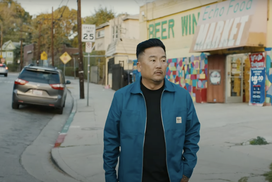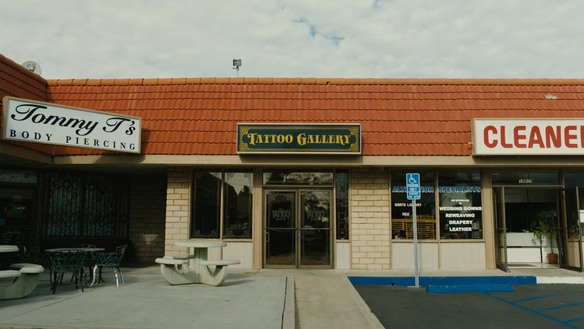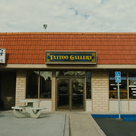Transcript
Mandy Kohlani: There's a bunch of things about pottery that I love. It combines all the elements, earth, water, fire, air. You feel that as you do it, and I didn't know what the connection was or what I was feeling, but it felt good like in my soul.
Roy Choi: My name is Roy Choi. I'm a chef, entrepreneur, family man, papi. This is the LA that I love, and I really want to show you small business owners that I believe are connected to the community and continuing to grow the community that they're in. We're going real deep into the heart of Echo Park, one of the biggest and most influential Latino neighborhoods. It is changing not all for the great, but there are still people like Mandy at POT there contributing to the community that are thinking of the community, and I think that's really where it all lies.
Mandy Kohlani: I am from Los Angeles, born and raised. My parents are from Iran. They're immigrants of the Iranian revolution. My people actually claim to have done the first pottery. Could be true, but it's also very like my people to claim that. So LA is changing very fast. It always has been, but this past 10 years, the gentrification of Los Angeles has felt very accelerated and we wanted to go somewhere where we felt like we were reclaiming some space and Echo Park felt like a very sensitive space for that. So we came to open a studio here and we offer free classes to anyone native to this neighborhood, especially the Latinx community.
We're people of color. Our friends and family are people of color, and we've definitely felt out of place in other art spaces. So we wanted people of color to feel prioritized. And so how we do that is offering sliding scale access free classes if they want it. We don't turn anyone away. We get students coming from all over the city. We get people from Inglewood, we get people from South LA. We get a lot of students from Long Beach.
Roy Choi: A lot of times where small business comes from is either you can't fit into an environment or you just, again, there are barriers for you to get a job, whether it's the color of your skin, things you may have done in your past. So small business is a place where you can really create from the ground up.
Mandy Kohlani: I believe that a lot of our cultures art is not encouraged and in fact, you spend your life surviving. Growing up in the public school system here, there's no wheels. It was rolling pins and clay and the tables, and we did everything with that. And that was kind of like when I realized that pottery was this thing that was highly accessible. I made a bong and that was just the coolest thing to me. As the years progressed and I went to college, I realized the art spaces were so different and so inaccessible. Not just monetarily, but in their vibe and energy too. I would go to spaces and they would be very white, to be honest. Then you're next to these people who've been doing art their whole lives and art's been encouraged in their world, their whole lives, and you feel like an absolute beginner or you're looked down at for not knowing how to do anything.
Part of our mission here is to be accessible for adults who are total first timers. I think the idea of needing a degree to do pottery is kind of like saying you need a degree to cook. You just need culture to do it. You just need a fire inside to do it. When you're working in an enterprise that has any social mission, there's huge pressure to be perfect, be like a saint, and I'm not. I'm a normal person. I've never run a business before. It was a lot of work, but it continues to be even more work.
I just had this baseline faith that it would be okay if we define success by the bottom line, we would be doing everything differently. But if we define success by the bottom line, we'd be like medium. But we just work our asses off. We do a ton of classes, a ton of workshops. We take cuts from our own profits to give people free things. But I feel very successful of the community that's grown here. I'm reminded, oh yeah, we need to be here. We need to exist.







